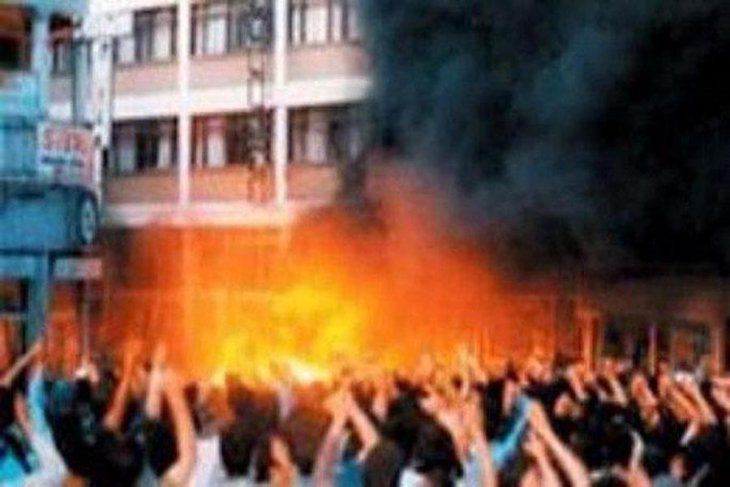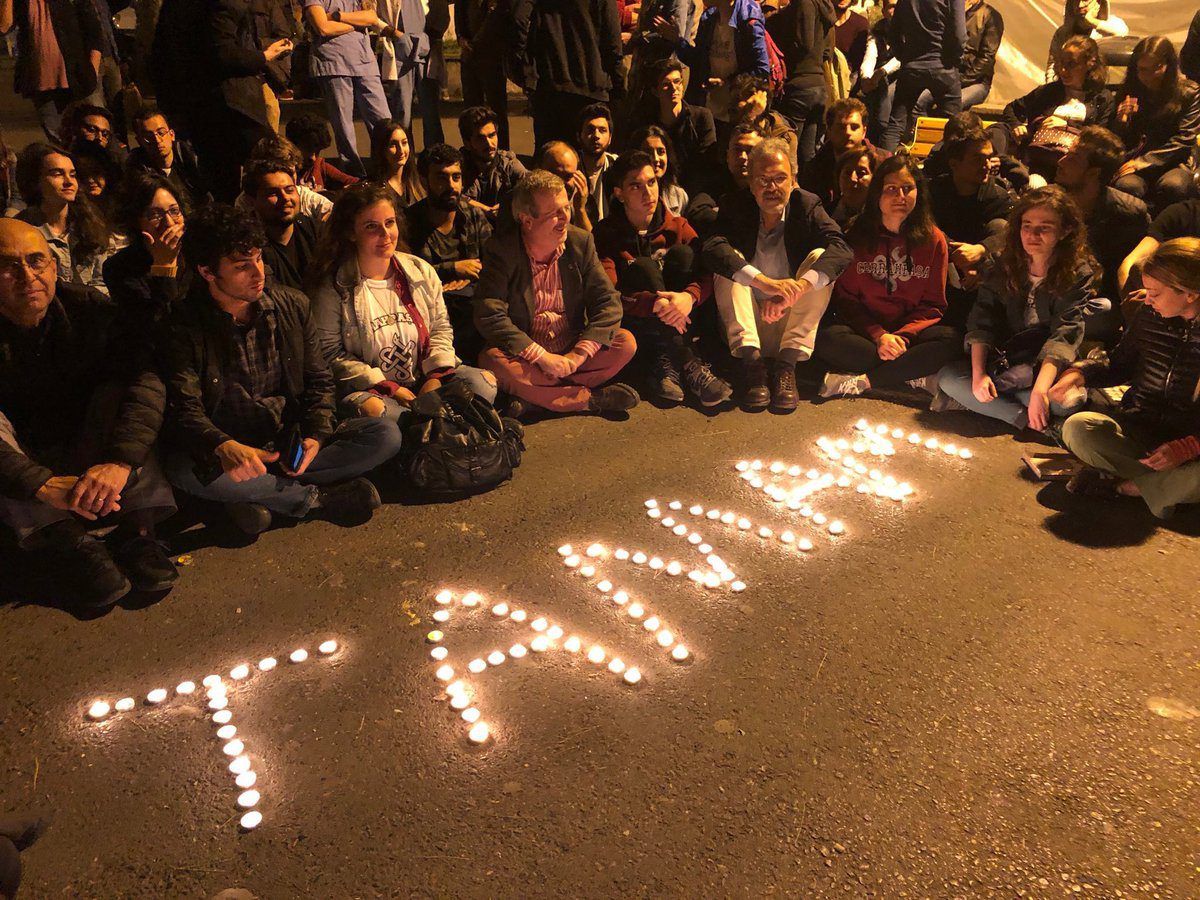at the time of the infamous 1993 massacre
The Sivas massacre is acknowledged as one of the worse cases of civil violence in Turkey’s recent history. Despite the passing of years, the tragedy remains fresh in Turkish collective memory as the failure of the court to serve justice has prevented the families of the victims, as well as wider society, from achieving a sense of closure.
A mob, mainly affiliated to fundamentalist and radical religious movements, torched the Madımak Hotel in Sivas on July 2, 1993, as the facility hosted a group of leading artists, scholars and intellectuals who were in town to participate in an Alevi festival. The gathering, which started on July 1, quickly turned into a mob lynching attempt that continued until the early hours of July 2. Despite having dispersed a crowd that had gathered earlier in front of the building of a cultural association, security forces did not intervene until the arson attack had started
The assault was largely aimed at artists, scholars and intellectuals who came to Sivas to participate in the conference organized by the Alevi Pir Sultan Abdal Cultural Association. The event was held in the city following the special invitation of then-Governor Ahmet Karabilgin. The participants were accused by the mob of being “faithless.”
Turkey’s legendary short story writer Aziz Nesin, in particular, had become a public target at the time for translating Salman Rushdie’s The Satanic Verses into Turkish.
Thirty-three people, including many Alevi intellectuals perished in the fire, along with two hotel workers and two assailants. Some 51 people, among them the outspoken writer Nesin, escaped with severe injuries. Assaults continued as firemen attempted to rescue the survivors.
Renowned and respected artists such as poets Metin Altıok, Behçet Aysan and Uğur Kaynar, writer Asım Bezirci, as well as popular Alevi musicians Muhlis Akarsu and Nesimi Çimen, were killed in the assault.
 The Sivas massacre is acknowledged as one of the worse cases of civil violence in Turkey’s recent history.
The Sivas massacre is acknowledged as one of the worse cases of civil violence in Turkey’s recent history.
 The Sivas massacre is acknowledged as one of the worse cases of civil violence in Turkey’s recent history.
The Sivas massacre is acknowledged as one of the worse cases of civil violence in Turkey’s recent history.



